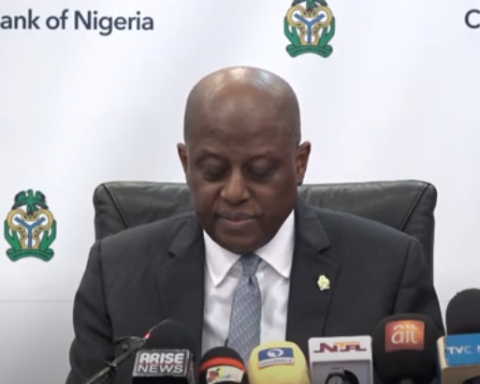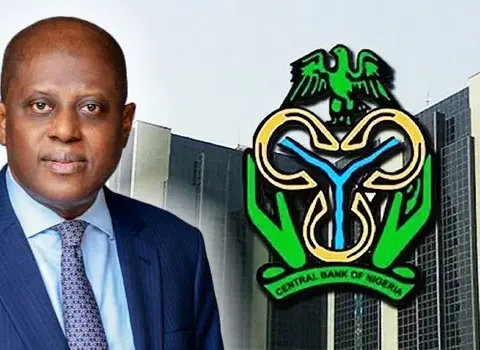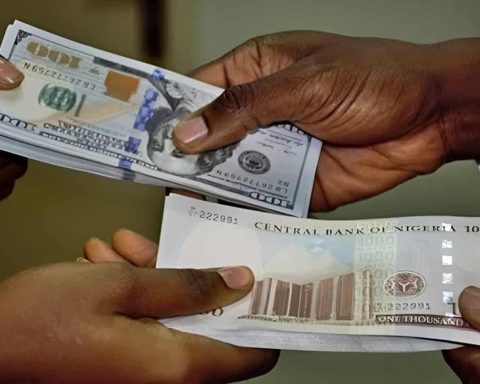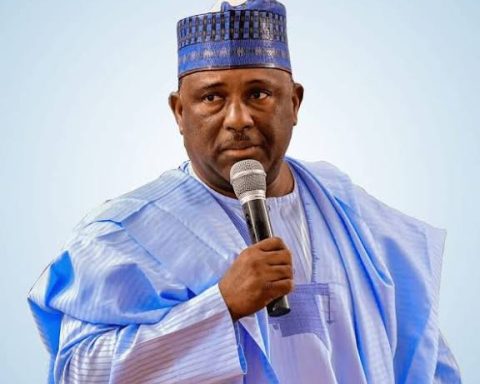Nigeria’s external debt servicing surged by 53.63% to $2.78bn in 2024. Experts warn of economic risks as debt servicing strains government resources.
Nigeria’s Soaring External Debt: A Growing Concern
Nigeria’s external debt servicing costs have surged significantly in 2024, raising concerns among economic experts about the long-term implications for the nation’s financial stability.
Join our WhatsApp ChannelAccording to the Central Bank of Nigeria (CBN), the country spent $2.78 billion on external debt servicing in the first seven months of 2024, marking a 53.63% increase compared to the $1.81 billion recorded in the same period in 2023.
The CBN’s Weekly International Payments data revealed that the highest amount spent on external debt servicing was in May 2024, totaling $854.36 million.
This was followed by $560.51 million in January and $542 million in July. In contrast, June 2024 saw the lowest expenditure, with only $50.82 million spent.
Factors Driving the Increase in External Debt Servicing
The significant rise in debt servicing costs has been attributed to various factors, including the devaluation of the naira and an increase in both domestic and international borrowing.
READ ALSO: Nigerian Govt Spends $1.12bn On External Debt Service In Q1
Tajudeen Ibrahim, Director of Research and Strategy at Chapel Hill Denham, explained, “There is a foreign currency translation impact on the debt servicing, and the second factor is the actual increase in the debt value itself. Nigeria has taken on more debt both internationally and locally during this period.”
Ibrahim’s observations align with data from the Debt Management Office (DMO), which reported that Nigeria’s total public debt stood at N121.67 trillion ($91.46 billion) as of March 31, 2024.
This represents a significant increase from the N97.34 trillion ($108.23 billion) recorded at the end of 2023.
The DMO clarified that the increase in naira terms is not solely due to new borrowing but also reflects the depreciation of the naira against the dollar.
Experts Warn of Potential Debt Trap
As Nigeria’s external debt continues to grow, some market analysts have expressed concerns that the country may be heading toward a debt trap.
The combination of a low credit rating and increasing debt obligations means that Nigeria is unable to access cheaper funding options.
This situation could lead to a further rise in debt servicing costs, which would, in turn, strain the government’s ability to fund essential services and infrastructure projects.
“There is a real risk that Nigeria could find itself in a debt trap if it continues to borrow at this rate,” warned an unnamed financial analyst. “The government needs to carefully consider the long-term implications of its borrowing strategy, especially given the challenges in repaying existing debts.”
Alternatives and Government Strategies
To mitigate the rising debt burden, experts have suggested that Nigeria should focus on borrowing for capital expenditure rather than for recurrent spending.
This approach would ensure that borrowed funds are invested in projects that can generate revenue and contribute to economic growth.
In May, international rating agency Fitch Ratings revised Nigeria’s outlook to positive from stable, affirming its Long-Term Foreign-Currency Issuer Default Rating at ‘B-’.
However, Fitch also projected that Nigeria’s external debt servicing costs would reach $4.8 billion in 2024 and $5.2 billion in 2025.
Fitch’s report noted, “Government external debt service is moderate, expected at $4.8 billion in 2024 and $5.2 billion in 2025. The government plans to meet its external financing obligations through a combination of multilateral lending, syndicated loans, and potentially from commercial borrowing.”
President Bola Tinubu has reiterated his administration’s commitment to reducing Nigeria’s reliance on borrowing for public spending.
He stated, “We must break the cycle of overreliance on debt to fund our national budget. This government is focused on creating sustainable revenue sources that will reduce the burden of debt servicing on our economy.”
Implications of Domestic Dollar Bond Issuance
In a move to diversify its borrowing sources, Nigeria recently launched a $500 million domestic FGN US dollar bond.
The bond, which is part of a $2 billion program, is aimed at attracting investments from pension funds, banks, and both local and diaspora Nigerians.
Analysts believe this initiative could help bolster Nigeria’s external reserves and stabilize the naira.
However, some economists have expressed concerns about the potential dollarisation of the Nigerian economy. Marcel Okeke, a former Chief Economist at Zenith Bank Plc, cautioned, “The ongoing issuance of domestic dollar-denominated bonds is a form of dollarisation of the economy. This could further weaken the naira and create a bi-monetary system, which is not ideal for Nigeria’s long-term economic stability.”
Okeke’s warning highlights the delicate balance that Nigeria must maintain as it navigates its growing external debt obligations. While the domestic dollar bond issuance offers an alternative source of funding, it also poses risks that could undermine the value of the naira and the country’s economic sovereignty.
Nigeria’s rising external debt and the associated servicing costs present significant challenges for the nation’s economy.
As the government seeks to manage its debt obligations and stabilize the naira, it must carefully consider the long-term implications of its borrowing strategies.
The ongoing debate over domestic dollar bond issuance and its potential impact on the economy underscores the complexity of Nigeria’s financial situation and the need for prudent economic management.















